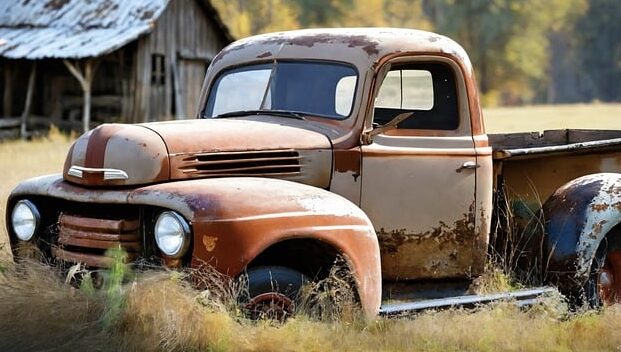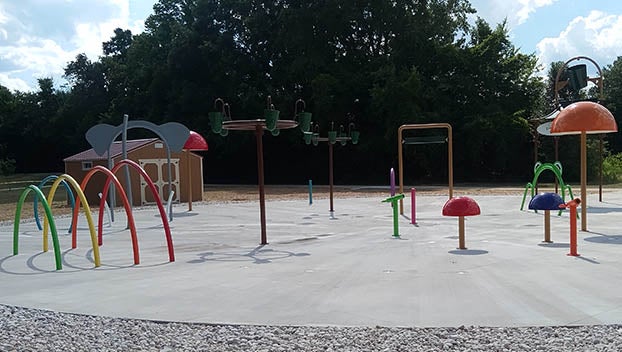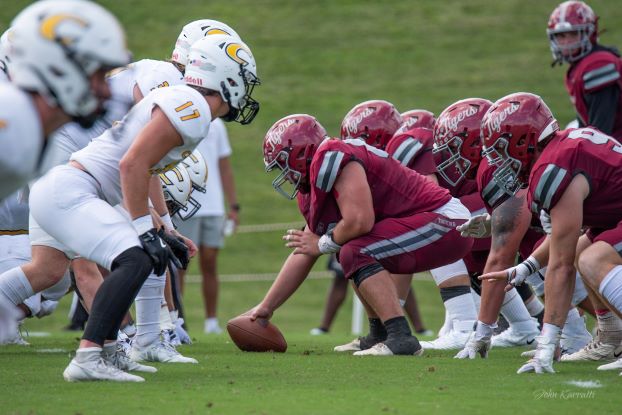Farm vehicle changes: Answering questions about VA’s new rules
Published 11:08 am Friday, June 28, 2024
|
Getting your Trinity Audio player ready...
|
There’s been some confusion and several questions sent our way, since the original story about the upcoming farm vehicle changes came out. As a reminder, beginning July 1, some unregistered vehicles driven by farmers, both on their property and off, must have a DMV-issued placard on both the front and back at all times.
This is where it got confusing for some residents, as they wanted to be clear as to which types of vehicles need the placard and which ones do not. First, let’s focus on the ones that do. There are three types of vehicles that will need one of those placards as of July 1. That includes:
- Pickup trucks with a gross vehicle weight rating of less than or equal to 7,500 pounds.
- Panel trucks with a gross vehicle weight rating of less than or equal to 7,500 pounds.
- Sport utility vehicles with a gross vehicle weight rating of less than or equal to 7,500 pounds.
That weight number is what to focus on. Do you have a smaller unregistered farm vehicle? Then yes, you’ll need to pay the DMV a visit and pick up a placard, one for the front and one for the back of the vehicle.
Trending
Now what about farmers with vehicles that weigh more than 7,500 pounds? For those folks, nothing much changes. You only need to continue to display that red and white “farm use” tag that you picked up at the feed store. Also, all trailers and semi-trailers qualify for the same exemption. But what if you’re hauling machinery? Nothing changes. As long as you have that red and white tag, you’ll be fine. The same goes for tractors and fruit sprayers operating on the highway.
About those larger vehicles
Now there are still some restrictions for those larger vehicles.
“They need to make sure they have liability insurance, they have their title (to the vehicle) and that they’re displaying the red and white tag,” said Katelyn Jordan. She works as a local and state advocacy specialist with the Virginia Farm Bureau Federation.
And just a reminder that you’re somewhat restricted to where you can travel with one of those larger vehicles, when it comes to going on the highway. You can transport livestock or produce a total of 75 miles between your farm and the destination. Basically, if you’re going to market, to a packing plant or a storage facility to sell, it’s ok to just have the regular “farm use” tag. But if you’re doing a long haul, more than 75 miles, that “farm use” tag won’t be helpful.
One more thing for those larger vehicles. You can’t just take them for personal use. As Jordan explained, that means you can’t take the vehicle to school, to church or travel to visit a friend.
Are fines part of farm vehicle changes?
Now if you don’t follow through and get pulled over by a state trooper, it’ll be a slight hit to the wallet. The first time you’re caught, it’ll be a fine of no more than $250. State officials told The Herald this week they’ll try to be lenient with the first fine. But if you’re caught a second, third or fourth time, then you’ll have to pay a visit to traffic court. After the first time, any other violations will be considered a traffic infraction where you’ll be written up by the state trooper and fined a guaranteed $250.
Trending
Since this was originally put together in 2023, State Police officials said they hoped the last 12 months gave farmers time to put together a plan with this.
“(Sure), we are hopeful that the 12-month grace period has allowed farmers the necessary time to (get familiar) with these farm use tag changes,” said Col. Gary Settle. He serves as superintendent of the Virginia State Police. Settle added that he and his staff would work with farmers to make sure they both understood the law and that all the vehicles had proper tags on display.
What do I need?
You will need to provide some information when you go to the Department of Motor Vehicles for that placard. They’ll need to see your farm name, location, size and what you grow or produce, along with signed statements confirming that the vehicle is used for farming and that it is insured. There will be a couple charges to go along with that.
There will be a $15 fee for the placard and application, with another $15 fee if you don’t have a title for the vehicle. Also, DMV officials pointed out one issue they’ve already talked to residents about. You can’t just swap the placard from one vehicle to another. It’s just like a license plate. If you sell the panel truck or SUV, then you have to return the placard to the DMV within 30 days of the sale.
State officials said they’re not trying to create more headaches with the farm vehicle changes, but point out time is limited.
“(We) hope that these placards will help ensure the proper use of farm use tags and, most importantly, make Virginia’s roads safer,” said Gerald Lackey. He serves as Virginia’s DMV Commissioner. “There is not much time left before enforcement begins, so we encourage farmers to bring their filled-out applications to their local DMV.”






